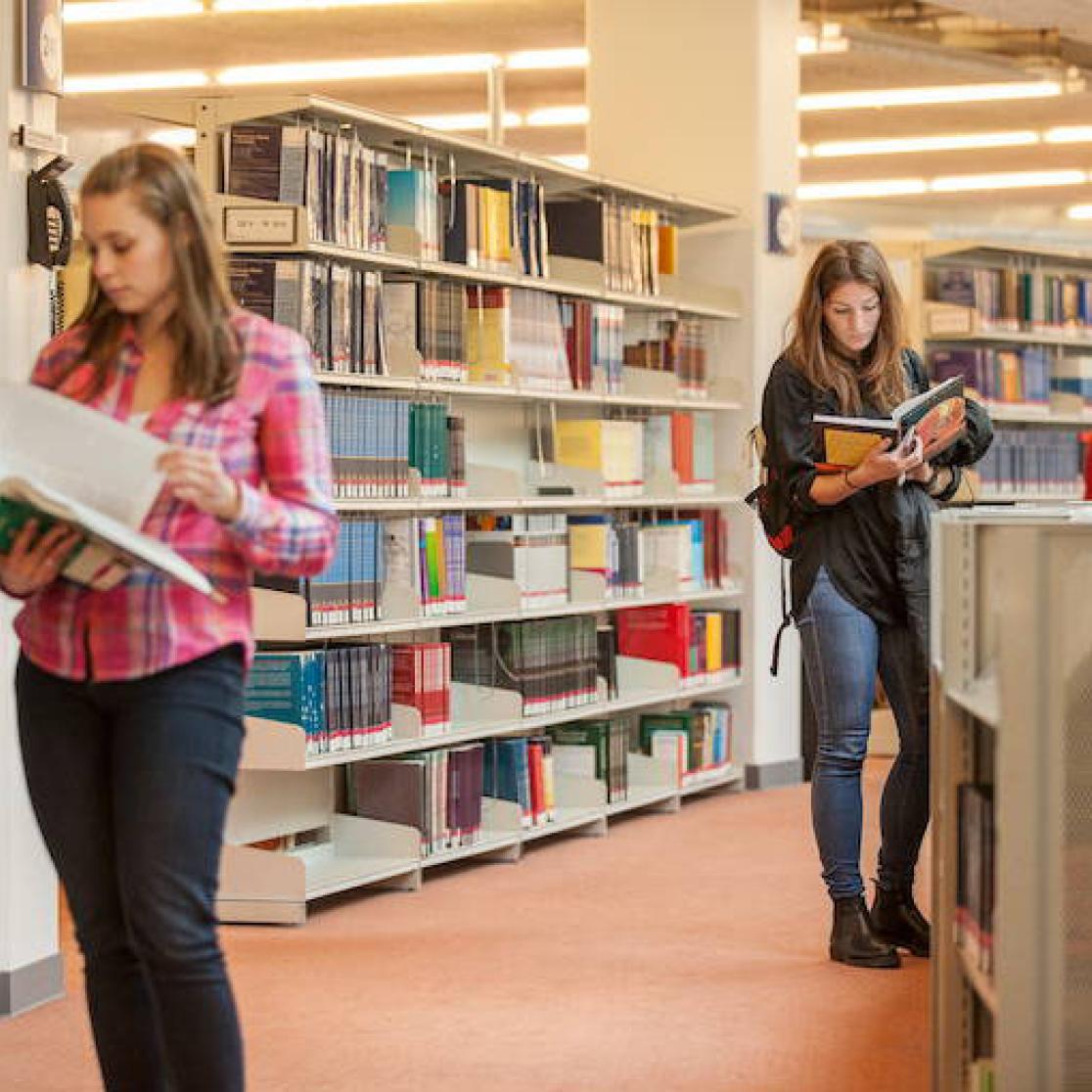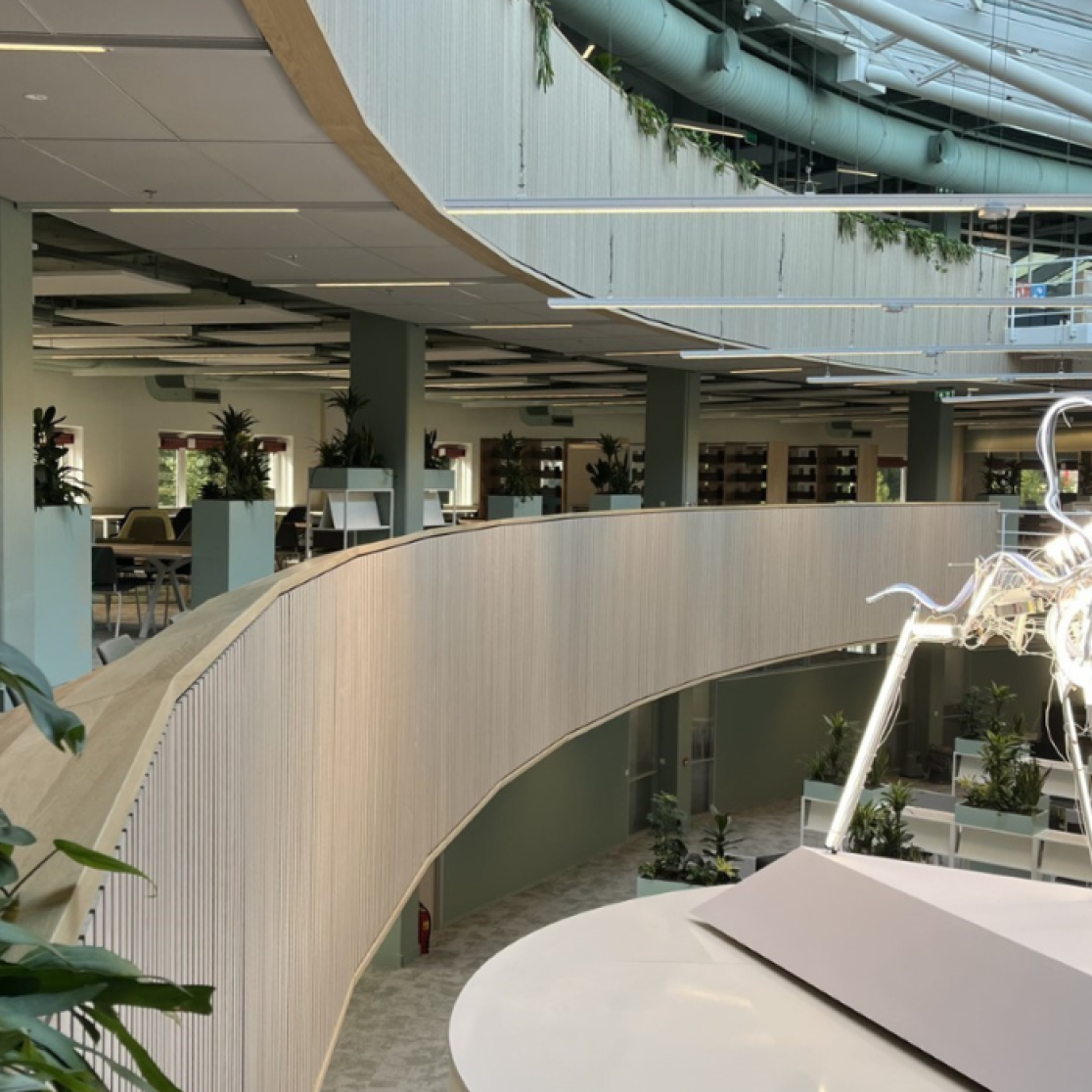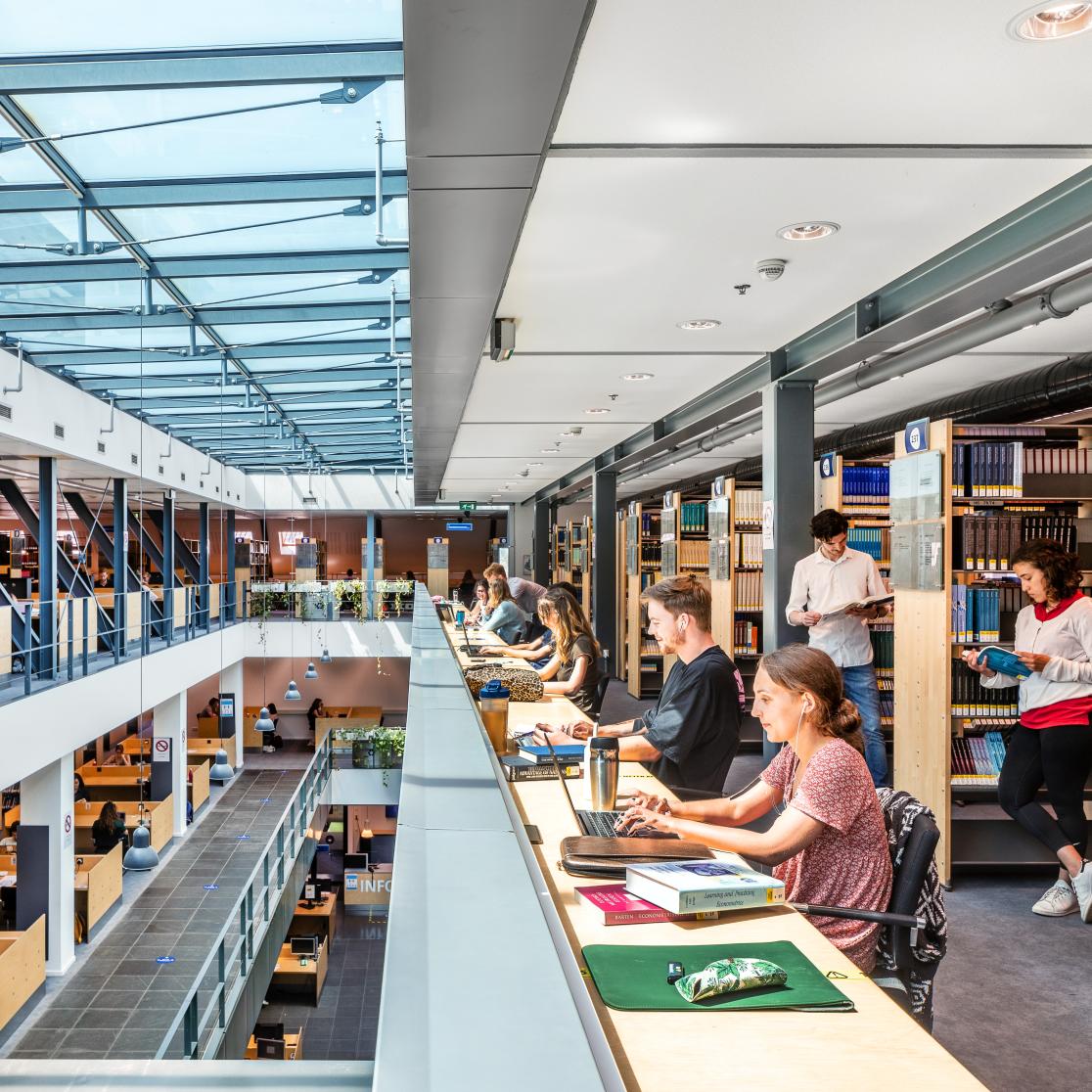An incident or emergency in the University Library: What to do?
Report any incidents or emergencies to staff members at the University Library information desk. Do not call emergency services; a staff member will do this for you.
Library staff members are easily identified by their red uniforms. They can also be contacted by phone on the following numbers:
- Inner City Library: +31 43 388 5004
- Randwyck Library: + 31 43 388 5043
Briefly explain the nature of the incident or emergency and where it took place so that staff members can arrange for adequate assistance.
What is an incident or emergency?
-
You find someone sick or injured
-
You see smoke or fire
- You witness a theft
- You feel intimidated
- You notice a strange smell or sound
What to do if the fire alarm goes off?
Leave the building immediately and follow all instructions issued by employees wearing the brightly coloured vests labelled ‘BHV’ (emergency assistant). They are responsible for evacuating the room or building. You can return to the room or building once the BHV has deemed the situation safe.
Where are the escape routes and emergency exits?
A map of the escape routes and emergency exits can be found near the stairwells on all floors in the library. These maps also explain where the fire extinguishers are located.
The maps are an important part of the building evacuation plan: they tell you how to leave the building as quickly and as safely as possible. The evacuation maps can be identified by their red frames.
Find your way in the library:
Floorplans of the Inner City Library (the Randwyck Library and the Bonnefanten Learning Spaces will be added)
Evacuation exercise: I’m in!
The University Library schedules regular evacuation exercises. Give yourself and the library staff the chance to practice evacuating the building by participating in one of these exercises.



